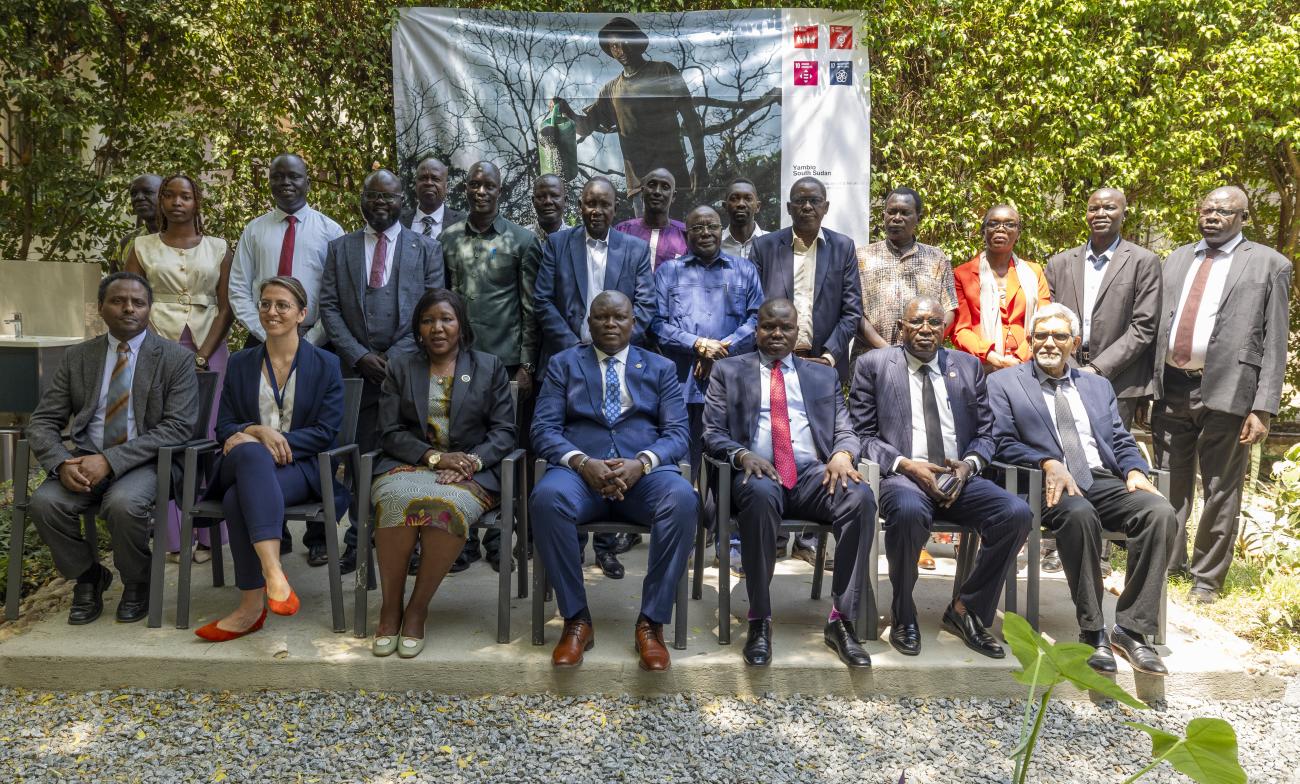South Sudan sees increased number of jobs created in the agricultural sector

ITC shares outcomes of the EU-funded “Jobs creation and Trade Development
In a bid to strengthen the agricultural sector, over 100 participants recently gathered in Juba for a seminar focused on improving access to finance, food safety, and quality in the fruits and vegetables trade. The event highlighted the results of a nearly five-year initiative by the International Trade Centre (ITC) aimed at supporting producers and traders in Central and Western Equatoria. The project, funded by the European Union with EUR 4,825,000 through its Emergency Trust Fund for Africa, sought to increase local incomes by expanding trade in fruits and vegetables.
A significant aspect of the project was its focus on empowering youth and women. These groups represented 70% of the participants in the project, which was designed to create employment opportunities and improve business practices in the agricultural sector. Through extensive training and support, ITC helped local farmers and traders enhance their businesses while promoting better understanding of food safety and quality standards.
The project’s key results include:
- Job Creation: The initiative created 2,380 jobs, employing 806 producers and traders across the project locations. Youth were the main beneficiaries, filling 90% of the jobs created, while women represented 30% of the workforce.
- Training and Skill Development: A total of 3,861 fruit and vegetable producers were trained in best agricultural practices, with more than 60% of the participants being young producers.
- Business and Entrepreneurship: In addition to agricultural training, 1,205 young people, 70% of whom were women, received coaching in business management and entrepreneurship, helping them grow their fruit and vegetable production and trading ventures.
- Financial Inclusion: The project facilitated connections between 669 producers and traders and microfinance institutions. As a result, 37 individuals received loans totaling SSP 9,780,000 (approximately USD 7,300), with youth and women accounting for the majority of the borrowers (62% and 65%, respectively).
- In addition to its direct support, the project organized trade fairs, business-to-business networking events, and facilitated access to financial resources, contributing to increased market access for local farmers and traders. This holistic approach has had a lasting impact on the local agricultural economy, creating new economic opportunities and raising standards for food safety and quality.
Hon. Joseph Moum Majak, Minister of Trade praised the success of the initiative, stating: “The successful implementation of the Job Creation and Trade Development Project is a testament to the power of collaboration. I extend my gratitude to all senior officials from the Ministry of Trade and Industry, the European Union, ITC experts, and key stakeholders whose dedication and resilience ensured the project’s success. I also thank representatives from the public and private sectors whose valuable contributions have strengthened the project’s impact. We must now ensure that its impact remains sustainable. We must continue supporting small businesses, improve access to finance, enhance food safety standards, and create a more enabling business environment in South Sudan.”
Lothar Jaschke, Deputy Ambassador of the European Union, also shared his thoughts: “Today we close a project that successfully fostered sustainable economic growth and created new opportunities for the people of South Sudan. Through this initiative, we have witnessed the importance of partnership in building resilient livelihoods and strengthening local economies. As this project concludes, its impact continues—through the knowledge gained, the jobs created, and the trade networks established. The European Union remains committed to supporting South Sudan’s journey towards a more diversified and sustainable agricultural sector. Investing in skills, market access, and value chains, with a focus on youth and women, empowers farmers and entrepreneurs and contributes to food security and economic growth.”
Aklile Habtemariam, ITC Country Manager, expressed satisfaction with the project’s achievements: “We are pleased with the progress made over the last more than four years under the Job Creation and Trade Development project. We supported subsistence-level farmers and traders engaged along the fruit and vegetable value chains. We provided support to enhance productive capacity, compliance with food safety and quality standards, and business management to foster increased trade. ITC will continue to be committed to supporting the Republic of South Sudan to realize its development needs through building national capacities to improve the business environment for micro, small, and medium-sized enterprises, and access to regional and global markets. For this, we will continue to foster our strong partnership with the European Union, who has provided the financial support for the project.”
The ITC initiative demonstrates how targeted support for youth and women, combined with practical financial and business tools, can drive sustainable economic growth and create lasting positive change in communities.




